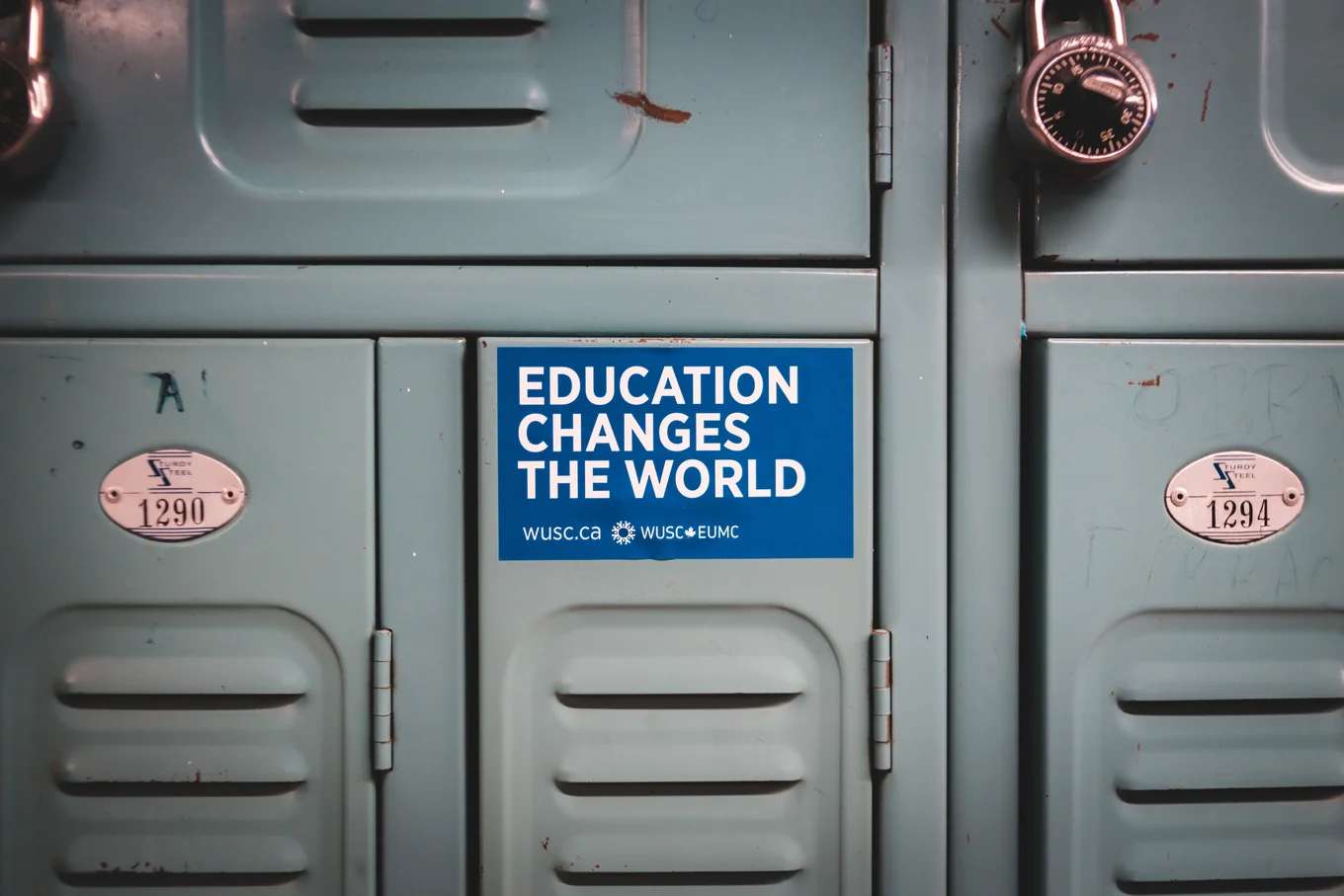
International Disability Day 2023: Why It Matters

Communications Officer
When I was in my early 20s, I developed a chronic illness that (amongst other things) has affected my mobility. Becoming disabled is an eye-opening experience, as it makes you acutely aware of two things: First, there are many ways in which society genuinely tries to help people with disabilities, and second, there are just as many (if not more) ways that society fails to accommodate disabled people. This is usually not done maliciously – or even consciously – but arises due to ignorance, lack of resources, or misinformation.
The (very!) positive implications are that raising awareness and dispelling myths can make a big difference. By highlighting ways to improve access and openly discussing the challenges that disabled people face, we can remove some of the barriers to improving accessibility.
In recognition of the recent International Day of Persons With Disabilities, Tarides wants to promote a greater understanding of the topic. They encouraged me to write a post highlighting some of the most common misconceptions about disabled people, along with ways that people and companies can improve accessibility in the workplace. Disabled people can and do make amazing contributions to society, and by improving accessibility we allow everyone to benefit from a more inclusive and diverse world of work.
Why do we Need to Talk About Disabilities?
Whether it be through media campaigns or designated courses, when people are better informed they are less likely to believe misconceptions or perpetuate stereotypes.
In turn, less stereotyping means less stigma for disabled people to deal with! It may sound like a trivial benefit, but stigma actually has several negative effects on the person or persons on the receiving end. Erving Goffman’s seminal work on stigma is still helpful today:
For Goffman, stigma is a general aspect of social life that complicates everyday micro-level interactions—the stigmatized may be wary of engaging with those who do not share their stigma, and those without a certain stigma may disparage, overcompensate for, or attempt to ignore stigmatized individuals. As you can imagine, managing stigma takes an emotional and mental toll on a person, and reducing this burden has a tangible effect.
Better information also helps non-disabled people be better allies! By knowing what challenges exist, non-disabled people become active advocates for accessibility improvements. Understanding the myths and misconceptions perpetuated against disabled people helps non-disabled people recognise and dispel them on a greater societal level.
Common Misconceptions
I recently held a presentation at Tarides where I addressed some common myths about disabilities:
- Disabilities fall Into Neat Categories: People tend to approach disabilities with a black-and-white perspective: if someone uses a hearing aid or signs, they must be completely deaf; if someone uses a wheelchair, they must be completely unable to use their legs, and so on.
People who think like this are often quick to question the legitimacy of a disabled person who does not fit their narrow understanding of what a disability ‘should’ look like. In reality, disabled people are not a monolith, and we use aids in a variety of ways and for a variety of reasons.
For example, there are people who are ambulatory wheelchair users who can use their legs and even walk to some extent, but who still need to use wheelchairs. Remember, people are unique, as are their impairments. There is no ‘correct’ way to have a disability.
- All Disabilities are Static or Unchanging: Following on from the point above, many disabilities arise out of conditions that are variable. It follows that a person’s experience of their impairment may be more or less disabling on one day or occasion than another. Chronic illnesses vary in severity due to external factors such as weather, time of day, time of year, how much a person has exerted themselves on that day or week, levels of inflammation, underlying infections, and so on.
Other conditions may be easier or harder to manage depending on the context: whether it is loud or quiet, whether temperatures are cold or hot, whether the surroundings are familiar or unfamiliar, whether it is dark or light, etc. The same person, managing the same condition, may present differently on different occasions.
- You can Tell Whether Someone is Disabled: Many disabilities are so-called hidden or non-visible disabilities, meaning they are hard to detect simply by observing someone. Examples of hidden disabilities include cancers, diabetes, asthma, lupus, arthritic conditions, autoimmune conditions, long covid, chronic fatigue, fibromyalgia, epilepsy, etc. What many people don’t realise is that several mental health conditions also fall under the umbrella of hidden disabilities, including anxiety, OCD, PTSD, bipolar disorder, schizophrenia, depression, and so on.
The UN Convention On The Rights Of Persons With Disabilities defines disabilities as:
“Persons … who have long-term physical, mental, intellectual or sensory impairments which in interaction with various barriers may hinder their full and effective participation in society on an equal basis with others.” This definition clearly covers a variety of people, many of whom will not necessarily be visibly disabled.
Sadly, many people with hidden disabilities face difficulties when trying to access the public resources that they need, such as priority parking spaces, accessible toilets, and priority seats. We can all help make their lives easier by reminding ourselves and others that not all disabilities are visible.
Disabilities and the Workplace
Working is challenging enough without facing down stigma, misconceptions, and stereotypes. By promoting an inclusive workplace that celebrates diversity and rejects stereotypes, companies can improve the social experience of disabled people at work.
Concretely, there are several ways in which companies can improve both the physical and social aspects of work. Examples include:
-
Accessibility of the workplace: Consider things like step-free access, accessible toilets, accessible staff rooms, etc. Smaller but still impactful changes include having a tactile map available, getting a portable ramp, having an evacuation plan for emergencies, etc.
-
Accessibility of tools & equipment: Ensuring that you provide the correct tools to your employees is crucial. If someone has a disability, they may need an adapted tool or assistive technology. Tarides provides employees with the tools we need to do our work, including equipment like adapted chairs, keyboards, and technology.
-
Flexible working schedules: When someone has a disability they may benefit from flexible working hours to accommodate rest breaks, treatments, or appointments. For example, at Tarides we manage our own time and contracts are flexible to accommodate individual needs. This goes for all employees but is really beneficial for those of us with disabilities.
-
Training: Organising regular training sessions at different levels that raise awareness about disabilities, educate on the importance of access, and share best practices on accessibility are important to help employees, managers, and leadership create a better working environment. I recently gave a presentation at Tarides for just this purpose – it was great to have the opportunity to do so and help educate my colleagues on the topic.
-
Work events: Making every work event accessible requires early planning to ensure that the access needs of each participant are met. It is good practice to provide advanced information about venues and transport at the event, giving the disabled person notice so that they know what to expect on the day.
-
Feedback: Of course, we are all human and we all make mistakes. That’s why having sound systems in place for employees to give feedback is so beneficial. When workplaces have safe and clear communication channels, employees feel more comfortable sharing their concerns and suggesting improvements.
This is an area where allies can make a big difference: non-disabled people can help advocate for improvements to the accessibility of their workplace, amplifying the messages of their disabled colleagues. No one likes to feel that they are ‘causing a fuss’, so hearing that other people agree with you is encouraging and reassuring. It is also important for leadership and managers to take a proactive approach, signposting their willingness and want to accommodate the needs of their team members. Rather than plucking up the courage to start the conversation, the disabled person is invited to discuss their access needs. Since circumstances change, having an ongoing conversation about access is key to ensuring that someone has the support they need.
Tarides’ Commitment
Tarides values diversity and inclusion and is committed to encouraging it in our communities and ecosystems. To make good on our commitment we provide flexible hours and contracts, adaptive technology and equipment, feedback opportunities, and training. We also employ inclusive hiring and promotion practices and sponsor several internships targeting marginalised groups.
Tarides also supports the further development of OCaml.org and accessibility is a big piece of that puzzle. We want to diversify and simplify the ways that people learn and engage with OCaml, supporting the sustainable and inclusive growth of the community. If you want to give us feedback on how we can improve you can contact us on our website. You can also follow us on Bluesky and LinkedIN.
Sources
Open-Source Development
Tarides champions open-source development. We create and maintain key features of the OCaml language in collaboration with the OCaml community. To learn more about how you can support our open-source work, discover our page on GitHub.
Explore Commercial Opportunities
We are always happy to discuss commercial opportunities around OCaml. We provide core services, including training, tailor-made tools, and secure solutions. Tarides can help your teams realise their vision
Stay Updated on OCaml and MirageOS!
Subscribe to our mailing list to receive the latest news from Tarides.
By signing up, you agree to receive emails from Tarides. You can unsubscribe at any time.
